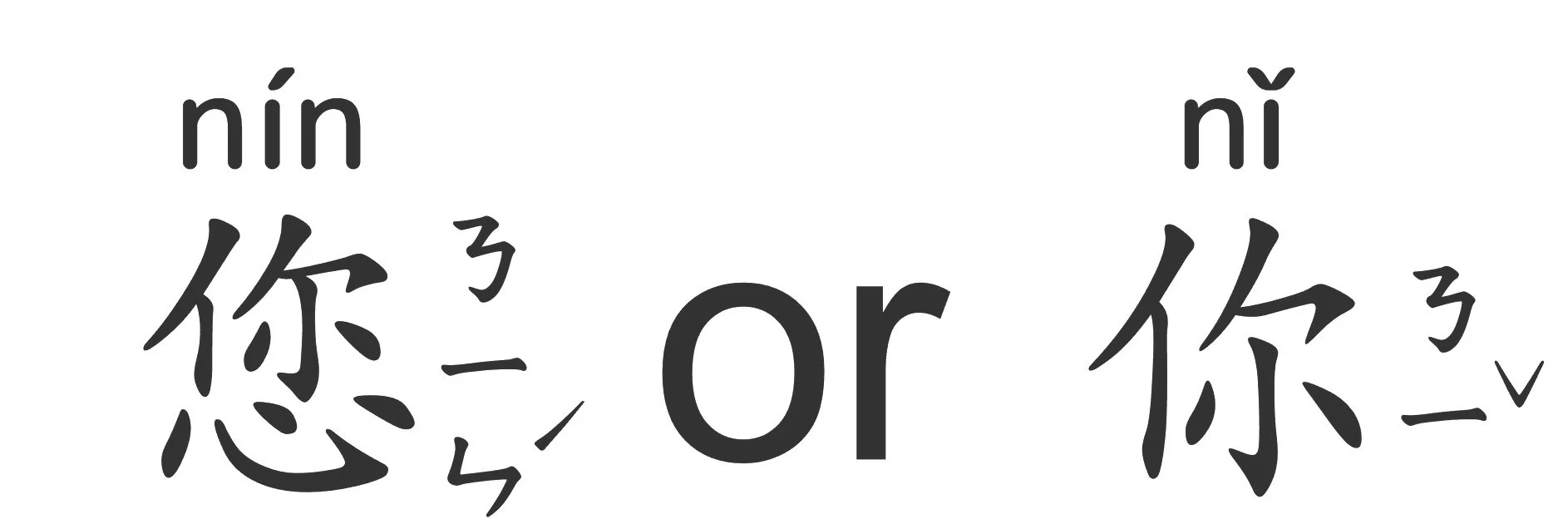Q: 「您 nin ㄋㄧㄣˊ」: Polite or Strange? If I say it in Taiwan, will people think I’m strange ?
A student recently asked me this great question
'“If I say 您 in taiwan, will people think I’m strange?
When should I use it?”
Here’s my honest answer, based on real-life usage in Taiwan:
👉 Yes it'll be awkward. I never use「您 nin」with friends or family.
In everyday conversations, we almost always use「你」.
I only use「您」in very formal business settings like when talking to a CEO,
or someone I want to show professional respect to.
Actually, 「您 nin」 gives a distant, formal and professional feel.
However, you’ll hear「您」a lot
more than you’ll actually use it yourself.
That’s because service staff, banks, or formal institutions often use it as part of their professional tone.
But as a learner or visitor, you’re not expected to say it unless you’re in a similar role or writing something formal.
1. Customer service (drinking store 飲料店, hotels 飯店, etc.)
If you work in the service industry and the company emphasizes good customer service,
you might use「您」when talking to customers.
For example, at a drink shop, when the drink is ready, you might hear:
🧋「您的飲料好了喔」
Nín de yǐnliào hǎo le ō.
(Your drink is ready.)
Or at a hotel check-in counter:
「您的房間是201號房」
Nín de fángjiān shì èr líng yī hào fáng.
(Your room is number 201.)
2. At the bank (or other formal service settings)
In a bank, the staff will often say:
「這裡麻煩您幫我簽名」
Zhè lǐ máfan nín bāng wǒ qiānmíng.
(Please sign your name here.)
Hearing「您」in this context actually feels quite natural.
It’s a way to show that I’m a respected customer.
It’s professional, polite, and friendly.
3. Showing respect to teachers or elders If you’re writing to a teacher
professor you deeply respect, you might say:
「老師,謝謝您。」
Lǎoshī, xièxie nín.
(Thank you, teacher.)
💡 Real example from me:
The last time I used「您」was in a LINE message to a business center owner who
helped me set up my company. He was professional, and it felt right to use「您」to
show respect in writing.
But here’s something a lot of learners don’t realize:
In Taiwanese Mandarin, we often AVOID using「你」or「您」in conversation.
It can sound repetitive or awkward (kind of like saying “you, you, you” in every English sentence).
That’s why you’ll often hear shortened phrases like:
-「飲料好了喔」(Your drink is ready.)
-「麻煩幫我簽名」(Please sign here.)
—without using「你」or「您」at all.
✨ My tip:
Listen closely to how Taiwanese people actually speak.
If you’re not in Taiwan, watching videos or listening to real conversations will
help you develop that native-like instinct for when to use (or not use)「您」.
❤️
I’d like to thank one of my newsletter subscribe who asked me this great question:)
If you’d like to be a part of the community, feel free to join HERE.

